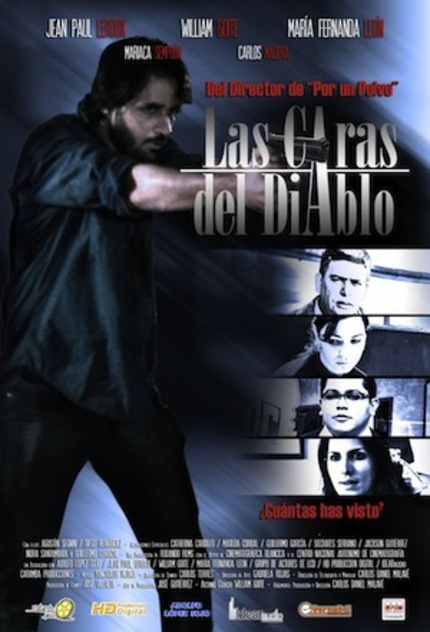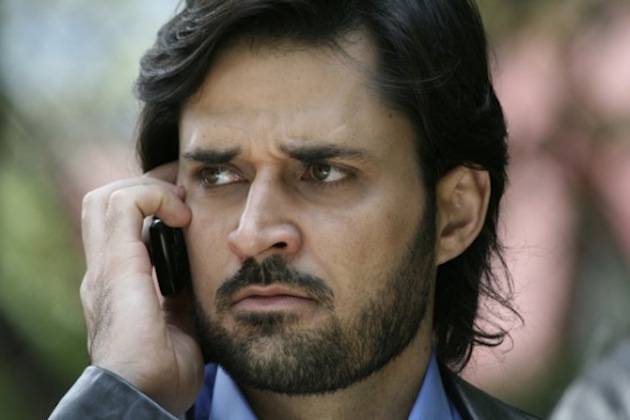Review: THE DEVIL'S FACES Are Everywhere

And that's first and primary problem I have with this film: I've seen this story unfold in countless films before it, sometimes for the best and sometimes for the worse - see 8mm, Man on Fire or Taken just to name a few contemporary examples- with the same thematic elements.
There's value in doing a film with close to no budget, independently as Malave did with The Devil's Faces, with his so called guerrilla style of filmmaking. I acknowledge the existence of this trend within the still forming Venezuelan film industry which is a new approach different to the state funding that permeates almost all the films made in Venezuela.
The problem as I see it is that not only did they use this guerrilla method of filmmaking in the filming but also when it comes to the story and plot, which don't get the attention they need. That's the biggest weakness of the film.
The main character, played by Venezuelan actor Jean Paul Leroux is a burned cop who failed to solve a kidnaping case that turned to murder. This affects his later work as a officer of the law, his relationship with his wife, etc. But the thing is we never get to see the trainwreck that his life has become, just a few glimpses that are not enough for us to really invest into him as a main lead. So when his own daughter is kidnapped and videotaped being sexually abused, his reactions as a character are kind of a caricature. The problem is not the acting, the problem is that his character is underwritten.
The other weakness of the film is the choice of low-end digital cameras. While the documentary style of handheld shooting and a low budget feel certainly can achieve a sense of reality and immediacy that even the blockbusters cannot obtain, Malave's film fails to capture 'reality' and does not mirror the facts of the police and their perception in Venezuelan society
I was hoping this film, being truly independent, would have a more critical view of the Venezuelan police forces without engaging in a direct attack against particulars. Instead we get a film where the police force and the police men are almost a religious order without failure or any sign of corruption which makes the depiction of them irreconcilable with the reality we Venezuelans live. Whether this is on purpose or not it takes away from the movie a lot.
And then we have the child abuse issue. I would assume that Malave's intention with this film was to show to a large number of people a serious subject such as child abuse and child pornography and the current growth of both as a criminal activity in Venezuela. Again, this being an independent film, I thought the filmmakers would show it without compromising and because of the subject itself I know it's difficult not to fall into the realm of exploitation, nevertheless I thought the result was very lackluster.
Finally the conclusion of the film is a convoluted mess of plot twists that owes more to the soap-opera than to the cop film tradition. Either that or the directing was done with such clumsiness that was meant to be shocking and surprising it turned out to be laughable and unconvincing. Like I said before, this seems to me a problem of the screenplay.
I really believe that Malave's first film, Por un Polvo [Dying to Get Laid, 2008], is a more accomplished work because of it's commitment to the comedy and the situations displayed. I guess that Malave's own experiences as a forming filmmaker, which is the core of that film, really helps in making it more authentic.
In spite of how negative this review might seem, I truly believe he is one of the strongest voices in Venezuelan film right now. Especially because he embraces the obvious commercial appeal of filmmaking even if you're dealing with a movie about a burn out cop chasing some pederasts





Do you feel this content is inappropriate or infringes upon your rights? Click here to report it, or see our DMCA policy.







